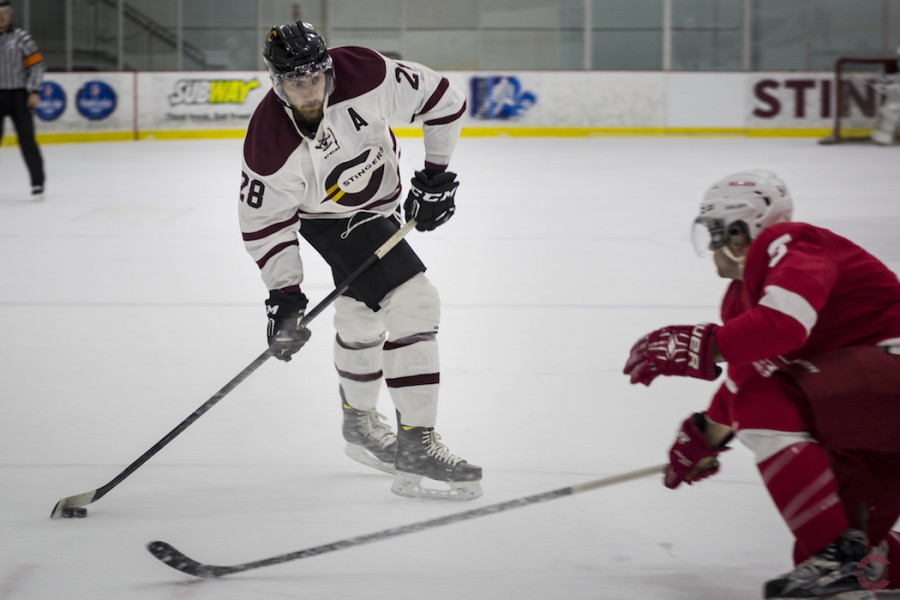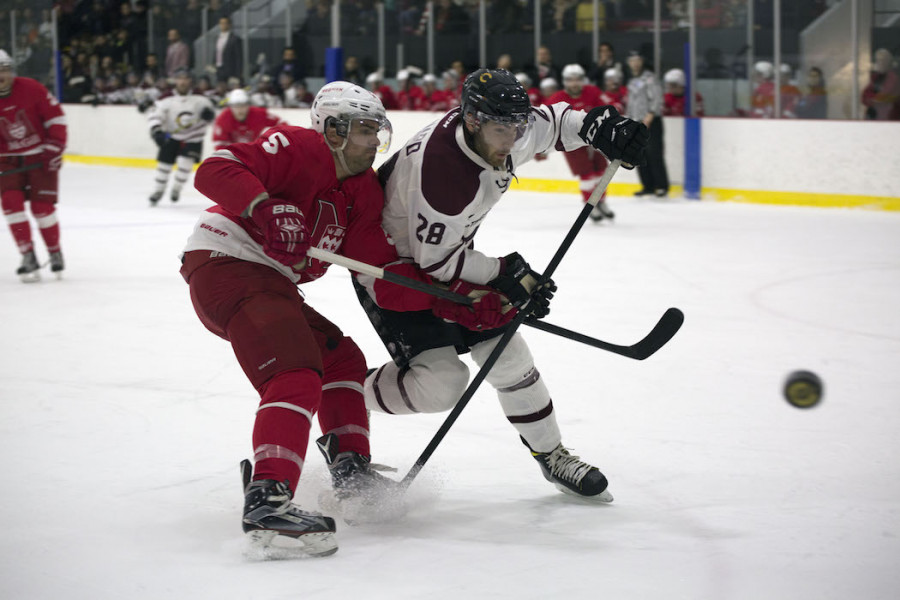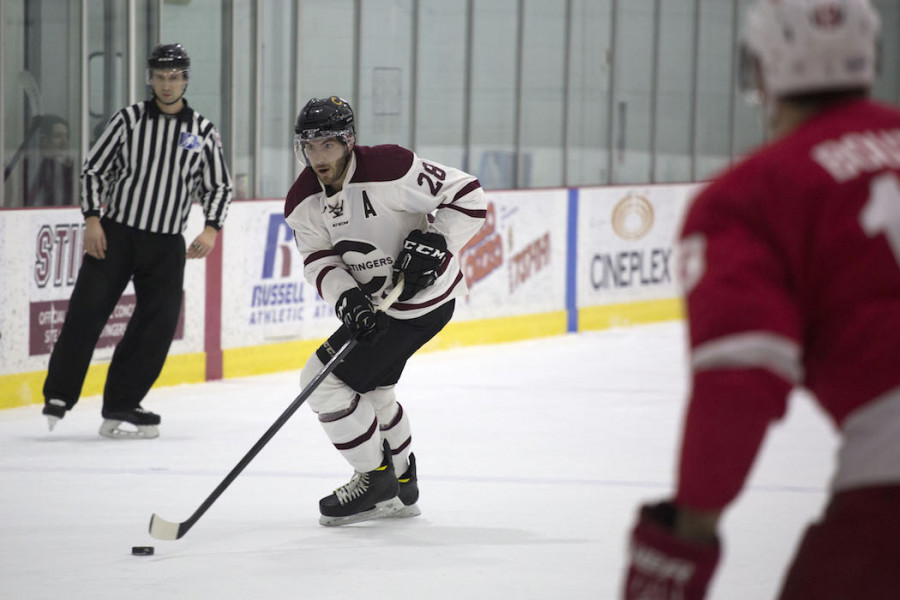Former Concordia Stinger Riding the Wave to the Australian Ice Hockey League
Jessyko Bernard Signs a One-Year Deal With the Perth Thunder.
Prior to the beginning of the New Year, Perth Thunder general manager Stan Scott was looking for a big winger to add to his roster for the 2016 the Australian Ice Hockey League season.
He decided to give his friend and official head coach of the Concordia Stingers, Marc-Andre Element, a phone call.
“We were looking for a big power forward with [Quebec Major Junior Hockey League] experience, we have found those guys compete better in the AIHL,” Scott said.
Element quickly turned his head to the one guy who was up for the task: Jessyko Bernard. Under contract for one season, the former Stinger has fit in just right with the Thunder, ranking second on the team with eight goals and seven assists in ten games.
“He has good speed and he’s a goal scorer too, and this is what they needed,” Element said. “This is what he brought to our program.”
Playing hockey in Australia might seem a bit odd at first. After all, the most popular leagues are located in North America and Europe.
For the New Brunswick native, the opportunity to lace up his skates during the offseason allowed him to stay fresh while tracking different offers to play in Europe next fall. With his degree in finance completed, he is now free to pursue hockey for as long as the chance remains.
“If I can keep playing hockey for two, three, five, ten years, that would be awesome” —Jessyko Bernard
Bernard is used to moving around. Born and raised in Dalhousie, NB, he played in the Quebec Major Junior Hockey League for the Halifax Mooseheads, Rouyn-Noranda Huskies and the Prince Edward Island Rocket before joining the Concordia Stingers in 2012.
In addition to maintaining his overall fitness, Bernard is able to travel to a completely different country, which is something hockey hasn’t generally “allowed him to do outside of North America.” His parents supported his decision to leave the country for the summer.
“My folks actually spent a month in Perth about two years ago and once I had the opportunity to come here, they told me ‘well you better take it, Perth is a beautiful place, and people are super friendly,’” Bernard remembered.
The AIHL adopts the North American “north-south” style of play, which involves dumping and chasing the puck in the opponent’s zone and quickly getting the puck to the net. The similarity between the two allowed Bernard to adjust easily to his new team. Moreover, he was pleasantly surprised to find out just how tough the guys played.
“It’s a pretty gritty league,” said Bernard. “A lot of stick work, and there’s a lot of big hits.”
As a semi-professional league, AIHL players do not receive a salary, but transportation and accommodation are paid for. Bernard is currently living with three other foreign players and works a day job on the side.
With eight teams in the league, each one is allowed to sign four import players outside of Australia. Scott explained that general managers tend to target North American players because their style of play is more suitable for their league.
Import players also help sell the game by virtue of having developed through the ranks from a young age. For instance, 16 of the 20 leading scorers this season are foreign players.
“Imports lift the credibility of the competition—the fans really take to the good ones,” said Scott.
Indeed, the fans do come out to show their support. For instance, the Perth Ice Arena, home to the Thunder, houses 750 seats. On average, 650 to 700 are sold out each game.
While teams try to compete to acquire the best import players, Scott believes that more Australian-born players are starting to play hockey, thanks to the league’s increasing credibility over the years.
“There are lots more coaching clinics and better coaching,” said Scott. “We are attracting juniors to the sport much younger than we ever did and AIHL teams are supporting them with development.”
As one of the four imports, Bernard expects to provide his expertise as needed.
He considers himself to be a guest on the team and will help out in any way he can. Much like the role he occupied with the Stingers, Bernard is expected to be a leader on and off the ice, while playing the gritty and fast-paced hockey is known for.
“The guys here want to learn from us,” Bernard said. “It’s still a growing sport here so—we definitely a big role.”






2_600_375_90_s_c1.jpg)
2_600_375_90_s_c1.jpg)
web_600_375_90_s_c1.jpg)
4_600_375_90_s_c1.jpg)